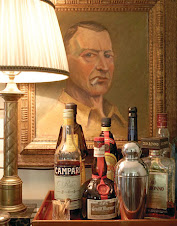I thought this was going to be a big seller. I was right! Result below. Interesting provenance too.
Previously unknown manuscript of Marco Polo’s account. Estimate: £200,000-300,000. Photo: Courtesy of Sotheby's.
From Art Daily, "LONDON.- Sotheby's London announced that it will offer in its sale of Western Manuscripts and Miniatures on Wednesday, 3 December, 2008, a previously unknown manuscript of Marco Polo’s account. Marco Polo, the most famous and popular of all mediaeval western travellers to the East, travelled from Europe through the Middle East into Central Asia and China – along the Silk Road – in the 13th century to meet Kublai Khan, a grandson of Genghis Khan and the founder of the Yuan Dynasty, in his pleasure palace in Xanadu. Dating to the 14th century, the account is one of the last remaining copies in private hands and is estimated at £200,000-300,000.
Only six manuscripts of Marco Polo’s account have appeared on the market in the last century, and none since that sold by Sotheby’s in 1930. It is most likely that the present manuscript was copied from a selection of manuscripts in the library of Glastonbury Abbey which are now almost completely lost or destroyed, and contains three sections covering British history, Near and Far Eastern History and prophecies, including the epic travel account of Marco Polo which contains all three books of his wide travels.
Provenance: Love this stuff.
The manuscript is clearly of monastic origin, and was probably produced by a member of the Augustinian canons of the priory of Breamore in Hampshire from manuscripts in the library of Glastonbury Abbey. Breamore had been founded in the twelfth century by Baldwin de Redvers, 1st Earl of Devon (d. 1155), and his uncle Hugh de Redvers, who were among the first to rebel against King Stephen, and were the only high ranking magnates to never accept him as king. The house had become dilapidated by 1501, and had incurred substantial debts. In the gathering tension of the 1530s the last prior, named Finch, wrote to Thomas Cromwell twice asking if there was anything in the holdings of the priory which Cromwell desired and offering such items as a gift as well as a guarantee of faithful service in exchange for Cromwell's support. However, the priory was not large (and had an annual income of only £200 5s. 1½d., together with two pounds of pepper), and so was closed on 10 July 1536 during the first wave of dissolutions. In November of the same year the priory and its possessions were leased to Henry Courtenay, Earl of Devon and Marquess of Exeter for an annual rent of £16, 15s., 1½d. The earl abstracted many land grants from the treasury of the monastery before demolishing the building, and most probably took the present manuscript from the library at the same time; perhaps its Near- and Far-Eastern history appealed to him as his family had a rich crusading history, and an ancestor, Pierre I de Courtenay (1126-83), had held office as emperor of Constantinople, Edessa and Jerusalem, and as ruler of the Turkish Empire during the Crusades. The manuscript remained in the family home of Powderham Castle for centuries, and has passed by descent to its present owner, the 18th Earl of Devon.
Thus, the manuscript almost certainly has an unbroken line of provenance since the fourteenth century, and has never been sold since the day it was written.
It went for three times the estimate at 937, 250.00 GBP. Did I hear any gates clang shut?
Emily Eerdsmans does Palm Beach: Kips Bay that is!
-
Beloved Author, historian, shop keeper, and DESIGNER Emily Eerdmans has
participated in this year's Palm Beach Kips Bay Decorator Showhouse! The
results ...
4 days ago
















No comments:
Post a Comment